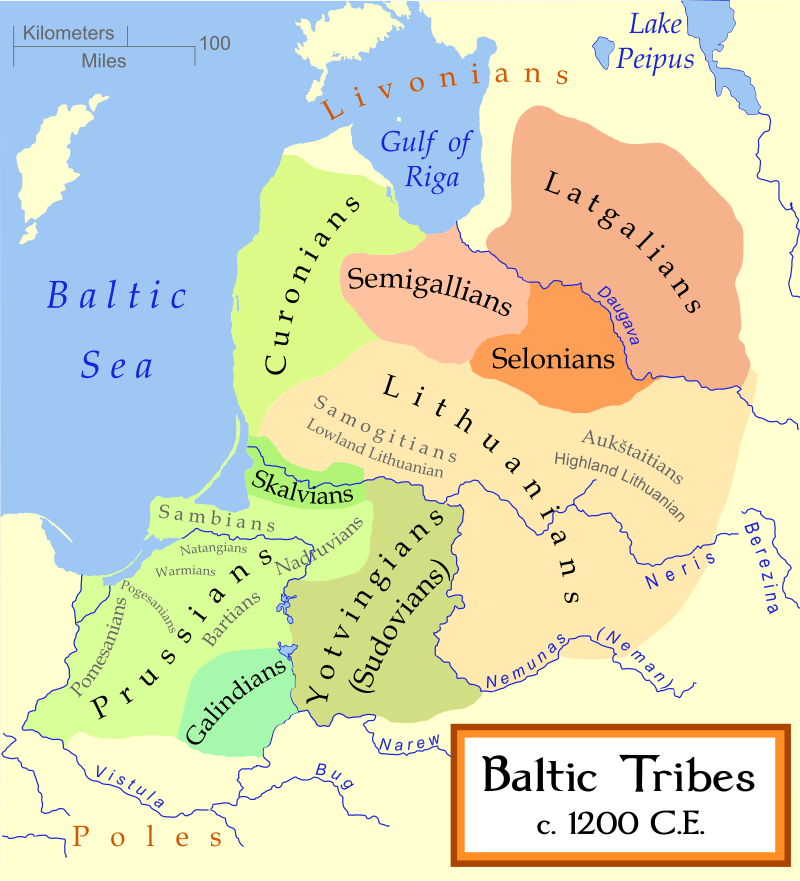East Prussia was originally inhabited by Pruzzen, not a Germanic tribe, but a Baltic one. In 1262, the Pruzzen united with the Kashubians, a Slavic Pomerian tribe also living in the Baltic region, to fight the invading Teutonic Knights. The Teutons won the war and Christianized the region. While the Pruzzens largely merged with the German settlers brought in from the west, the Kashubians managed to retain their language, Kashubian, and their religion, Catholicism. The Pruzzens were largely Germanized by the Teutonic Knights: their religion, formerly pagan, became Protestant; their language was rendered extinct by 1600; their surnames, some of which sounded Slavic, took on a Germanic flavour. Martin Luther's break with the Catholic church, and formation of the Lutheran Church, helped solidify the region as a Lutheran enclave.
The Pruzzen and the Kashubians did influence one another. As I blogged about the other day, Oma's childhood tradition was to spank her brothers and sisters on Easter morning to wake them up. The Kashubians used to gently whip each other with pussy willows on Easter Monday. Kashubian boys used to gently whip the girls with juniper twigs.
Note: Here is an interesting Christian Science article, "A Fourth Baltic State Emerges", a result of the break up of the Soviet Union in 1991 at http://www.csmonitor.com/1990/0620/efink.html.

https://en.wikipedia.org/wiki/Prussian_Crusade#/media/File:Baltic_Tribes_c_1200.svg
No comments:
Post a Comment